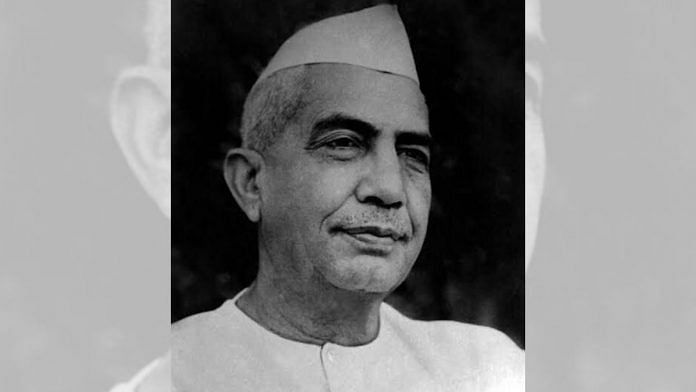New Delhi: Chaudhary Charan Singh was the only prime minister of India who did not face Parliament.
Jayaprakash Narayan and Acharya Kripalani of the Janata Party were appointed by party MPs to choose a PM, which is when Morarji Desai was sworn in on 24 March 1977 with Charan Singh as Home Minister. Differences between the two leaders emerged and Charan Singh resigned in June 1978. However, he was reinducted as Deputy PM in January 1979.
The Janata Party was an amalgamation of political parties, including the Bharatiya Jana Sangh (BJS) and Bharatiya Lok Dal, that got together to oppose the Congress during the Emergency.
A rise in Hindu-Muslim violence during Desai’s term, among other issues, led to Jana Sangh leaders such as L.K. Advani, A.B. Vajpayee and other members of the BJS pulling out of the Janata Party. No longer a majority, the government fell and was resurrected only when the Congress gave it outside support, with Charan Singh at its helm. He became PM on 28 July 1979.
Just before he was to prove his majority in Lok Sabha, Indira Gandhi withdrew support to Charan Singh’s government, and after just 23 days in power, he resigned.
In a statement, Charan Singh said he resigned because he did not want to lead a government formed by allying with the Congress, the leader of which “wanted him to withdraw certain cases against her (Indira Gandhi) relating to excesses during the Emergency”.
Singh resigned on 20 August 1979, but continued to be caretaker PM till 14 January 1980.
Face of farmers
In his cameo as prime minister, two-time chief minister of Uttar Pradesh and union home and finance minister, Chaudhary Charan Singh became the face of farmers and their needs. In his tenure, he introduced various policies to improve the lives and conditions of the farmers. The principal architect of the UP Zamindari Abolition Act, Singh has also authored books on zamindari abolition, land reforms and the establishment of an economically self-sufficient peasantry in UP.
To relieve the farmers of moneylenders, he introduced the Debt Redemption Bill in 1939 in the state assembly. Land Utilisation Bill, drafted by Singh in April 1939, aimed to “transfer the proprietary interest in agricultural holdings of UP to such of the tenants or actual tillers of the soil who chose to deposit an amount equivalent to ten times the annual rent in the government treasury to the account of the landlord”.
Rooting for a rural democracy, Singh opposed a resolution of joint, co-operative farming passed in 1959 by Congress — a party he defected from only to form the largest “most successful agrarian party in modern Indian politics, the Bharatiya Kranti Dal (BKD), which later, under different names, also became the core of the opposition”.
Owing to the leader’s contribution to India’s agrarian concerns, Singh’s memorial in New Delhi is named Kisan Ghat.
Paying his tribute to Singh on his 117th birth anniversary today — which is also nationally observed as Kisan Diwas, a name it was given in 2001 by the Government of India — Prime Minister Narendra Modi tweeted, “Remembering Chaudhary Charan Singh Ji on his Jayanti. Unwavering when it came to safeguarding the rights of hardworking farmers, Charan Singh Ji also worked tirelessly for the empowerment of the marginalised. He was at the forefront of strengthening India’s democratic fabric.”
Also read: Farmer leader Charan Singh’s manifestos never promised easy solutions like loan waivers



